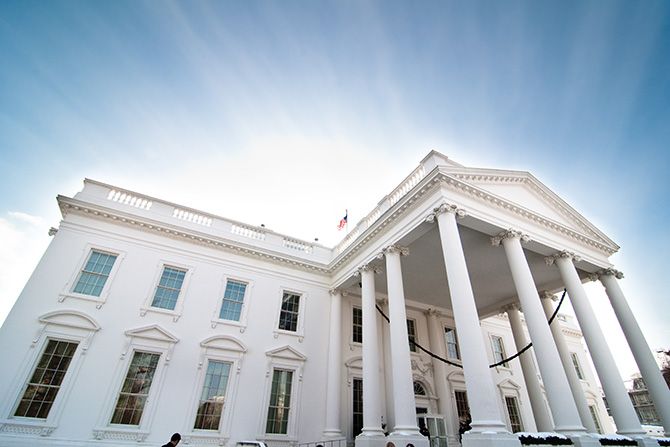On Aug. 7, 2025, President Donald Trump issued the “Guaranteeing Fair Banking for All Americans” Executive Order. The EO asserts that certain Americans have faced discrimination in banking due to their “political affiliation, religious beliefs, or lawful business activity.” The Order further states that these practices are prohibited under the Equal Credit Opportunity Act and constitute “politicized or unlawful debanking,” which must be addressed. The language of the Order has already sparked debate among regulators and lenders about how far its reach extends.
To grasp the rule’s scope, financial institutions must understand the meaning of “politicized or unlawful debanking.” The Order defines the term as:
“[…] an act by a bank, savings association, credit union, or other financial services provider to directly or indirectly adversely restrict access to, or adversely modify the conditions of, accounts, loans, or other banking products or financial services of any customer or potential customer on the basis of the customer’s or potential customer’s political or religious beliefs, or on the basis of the customer’s or potential customer’s lawful business activities that the financial service provider disagrees with or disfavors for political reasons.”
In combating debanking, the Order places the burden on regulators. This refers to all “Federal member agencies of the Financial Stability Oversight Council.” The Council includes most financial regulators, namely, the Office of the Comptroller of the Currency, the Federal Reserve Board, the Federal Deposit Insurance Corporation, the Consumer Financial Protection Bureau and the Department of the Treasury. Although not part of the Council, the Order includes the Small Business Administration as a defined “Regulator.” As part of facilitating the Order, the Trump administration chose to specifically utilize the SBA and the Treasury.
For the prudential regulators, such as the OCC, FDIC, the Fed, etc., the Order requires the removal of “reputational risk or equivalent concepts” from any materials that could result in politicized or unlawful debanking within 180 days of the Order. This includes guidance, manuals and other materials used to evaluate or regulate financial institutions.
Further, regulators must review banks’ policies to determine whether the institution encouraged or facilitated unlawful debanking and issue fines, consent orders or other disciplinary actions, as appropriate, if the regulators determined that a bank was in violation of the Order within the 120 days prior to its issuance.
Lastly, if the regulators determine that a bank unlawfully debanked a customer based on religion, then the regulators should refer the matter to the applicable state’s attorney general within 180 days of the Order.
Further, the Order requires the SBA to issue notice within 60 days to all SBA lenders regarding the debanking requirements. The Order also requires the Treasury to consult with the assistant to the president for Economic Policy to develop a comprehensive strategy to “combat” unlawful debanking by the regulators within 180 days of the Order.
In response to the issuance of the EO, the SBA, OCC and FDIC have issued statements or changes in compliance with the Order. The SBA’s Office of General Counsel issued a letter outlining four steps for lenders to ensure compliance with SBA requirements:
- Banks must identify any current policies or practices that furthered “unlawful debanking.”
- Institutions must make reasonable efforts to reinstate any customers who were denied access to banking due to these policies.
- Banks must notify any applicants qualified under the SBA program who were denied access to the option to renew engagement.
- Banks should identify all clients denied access to payment processing services under SBA programs and send notification to each customer, providing them with the option to renew.
Lenders must submit the report to the SBA by Jan. 5, 2026, to remain in good standing and avoid punitive damages.
On Sept. 8, 2025, the OCC issued a statement, as well as two bulletins, discussing plans to comply with the EO. Bulletin 2025-22 focuses on the Community Reinvestment Act, stating the OCC will review licensing filings to evaluate whether institutions debanked customers based on Order-defined factors. The OCC will use the evaluation to consider CRA ratings.
The second bulletin, Bulletin 2025-23, relates to privacy and suggests that some banks participated in “government-directed surveillance programs” and targeted individuals associated with the Jan. 6, 2021, activities.
Additionally, the OCC clarifies within the bulletin that it was issued to “remind” banks of their obligations to protect customers’ financial information under the Right to Financial Privacy Act. The bulletin further states that there are limited situations in which a bank is required to file a Suspicious Activity Report, suggesting that banks should be careful to avoid improperly disseminating private customer information within a SAR, and requires banks to evaluate their policies and procedures in light of the EO.
Lastly, the FDIC released a very short statement affirming the Order and confirming that the FDIC has plans to comply with it. However, these plans have not yet been released.
As with many Executive Orders and legal actions, there are arguments that the EO lacks the legal authority to compel action. As of this writing, there are no pending lawsuits opposing the Order; however, banks must now wait and see how regulators enforce the Order, and how Treasury chooses to combat “unlawful debanking.”

Erin Busse, JD, Vice President, Deputy General Counsel, Compliance Alliance
Erin holds two bachelor’s degrees from Loyola University–New Orleans and earned a juris doctorate from Saint Louis University School of Law.
Email Erin at info@ComplianceAlliance.org
Compliance Alliance is a Preferred Service Provider of the Indiana Bankers Association.








